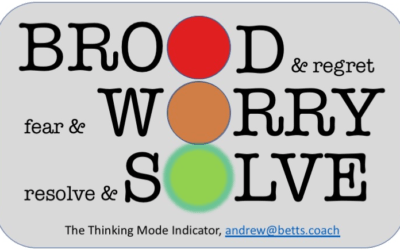If you are running some kind of technical sales support team – a field applications organisation, a sales engineering group or maybe an R&D team that does direct customer support – then one of your major concerns is probably to ensure that your engineers are able to respond to customers’ technical needs.
My guess is that if you, your reports or even your customers were asked to describe their image of this team, the word ‘expert’ would quickly surface.
However, through my work with Customer-Facing Engineers (CFEs – a useful, general term for describing technical experts who support customers), I have come to believe that leadership skills are just as important as subject matter expertise – and this in spite of the fact that most CFEs have no one reporting to them. As I argued in a recent article, CFEs should become experts in not being the expert, since it is simply not possible to have all the answers all the time.
To underline the point that expertise at not always being the expert is, in fact, a leadership quality, I cite a leadership article in the Harvard Business Review, “Leading people when they know more than you do”:
- Resist the inclination to simply work harder in order to fill the gaps in your knowledge
- Focus on relationships
- Add value by enabling things to happen, not by doing the work
- Practice seeing the big picture, not mastering the details
- Rely on an “executive presence” to project confidence, not on having all the answers.
When these points are laid out clearly, as above, they may seem obvious.
However, most companies invest far more time, money and energy on CFE training for content expertise than they do on non-technical skills such as these. This is sometimes because they completely overlook such skills, but more often it is because they underestimate the investment required to equip CFEs with them.
I have seen several companies recognise the need for the above behaviours but then merely put them down on a checklist, perhaps delivered at the end of a ‘pep talk’, for CFEs to refer to.
However, companies that make a serious investment in the leadership skills of their CFEs will surely get an excellent return. In high-tech B2B, for example, engineers have at least as much opportunity to influence their customers as salespeople and executives. Their technical prowess, business acumen, interpersonal skills and leadership abilities all play a part in creating the image of the companies that they represent.
Some CFEs are, by virtue of their path through life, strong in all these areas, but not all. In leading your leaders, it’s therefore a great idea to take stock of their skills and to balance the investment you make in their mastery of ‘content’ and ‘process’.
The rewards are many: more productive customer meetings, more leads coming in through your CFEs, better customer retention and additional differentiation through the quality of your technical support, to name but a few.
You can build up the leadership skills of your team quickly and predictably with ICON9, a toolset for Customer-Facing Engineers. Find out more about ICON9 with this short video.






